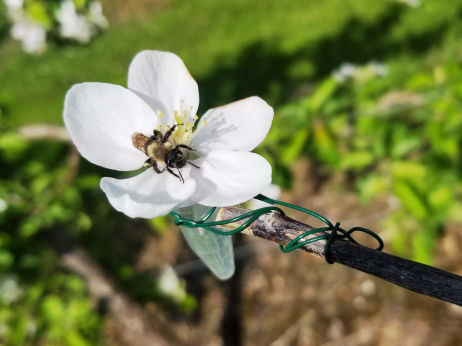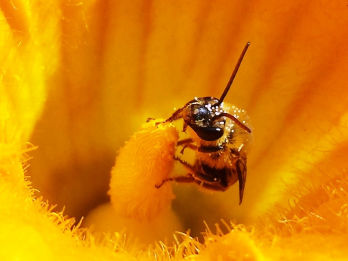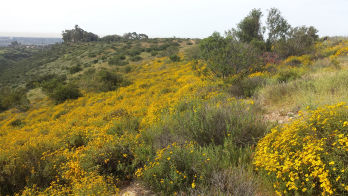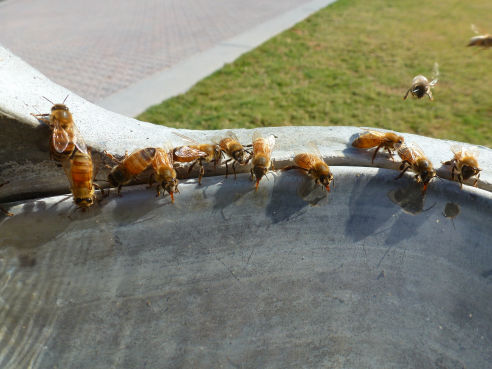Measuring the realized pollination effectiveness of pollinators: Quantifying the pollination effectiveness of different members of the pollinator community is a crucial step for evaluating pollination services in managed and natural ecosystems. However, the traditional "single-visit" approach largely ignores important aspects of pollinator behavior and mophology, likely leading to erroneous estimates of the actual pollination services delivered. Using apple orchards as a model system, I seek to develop a more realistic framework for measuring pollination effectiveness by applying a combination of field, botanical, and genetic techniques. This research forms the basis of my current work in the James Thomson Lab at University of Toronto.



